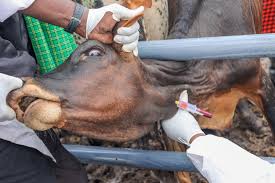The East African Community (EAC) is increasing efforts to boost the horticulture sector, aiming to strengthen food security, create jobs, and improve trade across the region.
Horticulture, which includes the farming of fruits, vegetables, and flowers, has become one of the fastest-growing areas in agriculture. It plays a key role in improving farmers’ incomes and supplying local and international markets with fresh produce.
According to EAC officials, the new strategy will focus on improving farming practices, expanding access to export markets, and supporting smallholder farmers with training, equipment, and financing.
A spokesperson from the EAC Secretariat said:
“We are working closely with member states to ensure that the horticulture sector becomes more competitive and sustainable. Our goal is to turn East Africa into a major player in the global fresh produce market.”
Despite its potential, the horticulture industry still faces challenges such as poor infrastructure, limited access to modern farming tools, and strict international market standards.
Small-scale farmers also struggle with low bargaining power and limited knowledge of export requirements.
To address this, the EAC plans to:
Invest in cold storage and transport facilities
Offer technical training to farmers
Strengthen regional trade policies
Improve cooperation between governments and the private sector
Experts say that a strong horticulture sector can help fight poverty and hunger, especially in rural areas where agriculture is the main source of income. It also offers opportunities for youth and women to participate in agribusiness, creating jobs and reducing unemployment.
Some member countries, like Kenya and Tanzania, have already made notable progress in flower and vegetable exports. The EAC now aims to build on these successes and create a unified regional approach to growth.
The EAC’s increased support for the horticulture sector is a step in the right direction. With the right policies, infrastructure, and farmer support, East Africa could soon become a leading exporter of high-quality fruits, vegetables, and flowers—benefiting both the economy and the people.



